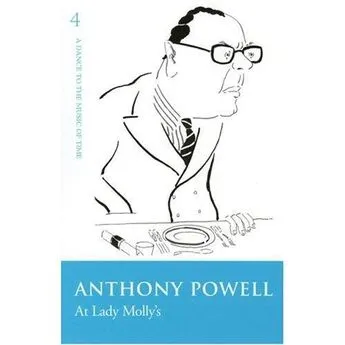Anthony Powell - A Buyers Market
- Название:A Buyers Market
- Автор:
- Жанр:
- Издательство:Arrow
- Год:2005
- ISBN:нет данных
- Рейтинг:
- Избранное:Добавить в избранное
-
Отзывы:
-
Ваша оценка:
Anthony Powell - A Buyers Market краткое содержание
Anthony Powell's universally acclaimed epic A Dance to the Music of Time offers a matchless panorama of twentieth-century London. Now, for the first time in decades, readers in the United States can read the books of Dance as they were originally published-as twelve individual novels-but with a twenty-first-century twist: they're available only as e-books. The second volume, A Buyer's Market (1952), finds young Nick Jenkins struggling to establish himself in London. Amid the fever of the 1920s, he attends formal dinners and wild parties; makes his first tentative forays into the worlds of art, culture, and bohemian life; and suffers his first disappointments in love. Old friends come and go, but the paths they once shared are rapidly diverging: Stringham is settling into a life of debauchery and drink, Templer is plunging into the world of business, and Widmerpool, though still a figure of out-of-place grotesquerie, remains unbowed, confident in his own importance and eventual success. A Buyer's Market is a striking portrait of the pleasures and anxieties of early adulthood, set against a backdrop of London life and culture at one of its most effervescent moments.
A Buyers Market - читать онлайн бесплатно полную версию (весь текст целиком)
Интервал:
Закладка:
Charlotte Street, as it stretches northward towards Fitzroy Square, retains a certain unprincipled integrity of character, though its tributaries reach out to the east, where, in Tottenham Court Road, structural anomalies pass all bounds of reason, and west, into a nondescript ocean of bricks and mortar from which hospitals, tenements and warehouses gloomily manifest themselves in shapeless bulk above mean shops. Mr. Deacon’s “place” was situated in a narrow by-street in this westerly direction: an alleyway, not easy to find, of modest eighteenth-century — perhaps even late seventeenth-century — houses, of a kind still to be seen in London, though growing rarer, the fronts of some turned to commercial purposes, others bearing the brass plate of dentist or midwife. Here and there a dusty creeper trailed from window to window. Those that remained private dwellings had three or four bells, one above the other, set beside the door at a height from the ground effectively removed from children’s runaway rings. Mr. Deacon’s premises stood between a French polisher’s and the offices of the Vox Populi Press. It was a sordid spot, though one from which a certain implication of expectancy was to be derived. Indeed, the façade was not unlike that row of shops that form a backcloth for the harlequinade; and, as I approached the window, I was almost prepared for Mr. Deacon, with mask and spangles and magic wand, suddenly to pirouette along the pavement, tapping, with disastrous consequence, all the passers-by.
However, the shop was shut. Through the plate glass, obscured in watery depths, dark green like the interior of an aquarium’s compartments, Victorian work-tables, papier-mâché trays, Staffordshire figures, and a varnished scrap screen — upon the sombrely coloured montage of which could faintly be discerned shiny versions of Bubbles and For He Had Spoken Lightly Of A Woman’s Name —swam gently into further aqueous recesses that eddied back into yet more remote alcoves of the double room: additional subterranean grottoes, hidden from view, in which, like a grubby naiad, Gypsy Jones, as described so vividly by Mr. Deacon, was accustomed, from time to time, to sleep, or at least to recline, beneath the monotonous, conventionalised arabesques of rare, if dilapidated, Oriental draperies. For some reason, the thought roused a faint sense of desire. The exoticism of the place as a bedroom was undeniable. I had to ring the bell of the side door twice before anyone answered the summons. Then, after a long pause, the door was half opened by a young man in shirt-sleeves, carrying a dustpan and brush.
“Yes?” he asked abruptly.
My first estimate of Barnby, whom I immediately guessed this to be, the raisonneur so often quoted at the party by Mr. Deacon as inhabiting the top floor of the house, was not wholly favourable; nor, as I learnt later, was his own assessment of myself. He looked about twenty-six or twenty-seven, dark, thick-set, and rather puffed under the eyes. There was the impression of someone who knew how to look after his own interests, though in a balanced and leisurely manner. I explained that I had come to see Mr. Deacon.”
“Have you an appointment?”
“No.”
“Business?”
“No.”
“Mr. Deacon is not here.”
“Where is he?”
“Cornwall.”
“For long?”
“No idea.”
This allegedly absolute ignorance of the duration of a landlord’s retirement to the country seemed scarcely credible in a tenant whose life, at least as presented in Mr. Deacon’s anecdotes, was lived at such close range to the other members of the household. However, the question, put in a somewhat different form, achieved no greater success. Barnby stared hard, and without much friendliness. I saw that I should get no further with him at this rate, and requested that he would inform Mr. Deacon, on his return, of my call.
“What name?”
“Jenkins.”
At this, Barnby became on the spot more accommodating. He opened the door wider and came out on to the step.
“Didn’t you take Edgar to Milly Andriadis’s party?” he asked, in a different tone.
“In a manner of speaking.”
“He was in an awful state the next day,” Barnby said. “Worried, too, about losing so many copies of that rag he hawks round. I believe he had to pay for them out of his own pocket. Anyway, Edgar is too old for that kind of thing.”
He spoke this last comment sadly, though without implication of disapproval. I mentioned the unusual circumstances that had brought Mr. Deacon and myself to the party. Barnby listened in a somewhat absent manner, and then made two or three inquiries regarding the names of other guests. He seemed, in fact, more interested in finding out who had attended the party than in hearing a more specific account of how Mr. Deacon had received his invitation, or had behaved while he was there.
“Did you run across a Mrs. Wentworth?” he asked. “Rather a handsome girl.”
“She was pointed out to me. We didn’t meet.”
“Was she with Donners?”
“Later in the evening. She was talking to a Balkan royalty when I first saw her.”
“Theodoric?”
“Yes.”
“Had Theodoric collected anyone else?”
“Lady Ardglass.”
“I thought as much,” said Barnby. “I wish I’d managed to get there. I’ve met Mrs. Andriadis — but I can’t say I really know her.”
He nodded gravely, more to himself than in further comment to me, seeming to admit by this movement the justice of his own absence from the party. For a moment or two there was silence between us. Then he said: “Why not come in for a minute? You know, all sorts of people ask for Edgar. He likes some blackmailers admitted, but by no means all of them. One has to be careful.”
I explained that I had not come to blackmail Mr. Deacon.
“Oh, I guessed that almost at once,” said Barnby. “But I was doing a bit of cleaning when you rang — the studio gets filthy — and the dust must have confused my powers of differentiation.”
All this was evidently intended as some apology for earlier gruffness. As I followed up a narrow staircase, I assured him that I had no difficulty in grasping that caution might be prudent where Mr. Deacon’s friends were concerned. In answer to this Barnby expressed himself very plainly regarding the majority of Mr. Deacon’s circle of acquaintance. By this time we had reached the top of the house, and entered a fairly large, bare room, with a north light, used as a studio. Barnby pointed to a rickety armchair, and throwing dustpan and brush in the corner by the stove, sat down on a kind of divan that stood against one wall.
“You’ve known Edgar for a long time?”
“Since I was a child. But the other night was the first time I ever heard him called that.”
“He doesn’t let everyone use the name,” said Barnby. “In fact, he likes to keep it as quiet as he can. As it happens, my father was at the Slade with him.”
“He has given up painting, hasn’t he?”
“Entirely.”
“Is that just as well?”
“Some people hold that as a bad painter Edgar carries all before him,” said Barnby. “I know good judges who think there is literally no worse one. I can’t say I care for his work myself — but I’m told Sickert once found a good word to say for some of them, so there may have been something there once.”
“Is he making a success of the antique business?”
“He says people are very kind. He marks the prices up a bit. Still, there always seems someone ready to pay — and I know he is glad to be back in London.”
“But I thought he liked Paris so much.”
“Only for a holiday, I think. He had to retire there for a number of years. There was a bit of trouble in the park, you know.”
This hint of a former contretemps explained many things about Mr. Deacon’s demeanour. For example, the reason for his evasive manner in the Louvre was now made plain; and I recalled Sillery’s words at Mrs. Andriadis’s party. They provided an illustration of the scope and nature of Sillery’s stock of gossip. Mr. Deacon’s decided air of having “gone downhill” was now also to be understood. I began to review his circumstances against a more positive perspective.
“What about War Never Pays! , and Gypsy Jones?”
“The pacifism came on gradually,” said Barnby. “I think it followed the period when he used to pretend the war had not taken place at all. Jones’s interests are more political — world revolution, at least.”
“Is she in residence at the moment?”
“Returned to the bosom of her family. Her father is a schoolmaster in the neighbourhood of Hendon. But may I ask if you, too, are pursuing her?”
After the remarks, largely incoherent, though apparently pointed enough, made by Mr. Deacon at the party, to the effect that Barnby’s disapproval of Gypsy Jones’s presence in the house was radically vested in his own lack of success in making himself acceptable to her, I assumed this question to be intended to ascertain whether or not I was myself to be considered a rival in that quarter. I therefore assured him at once that he could set his mind at rest upon that point, explaining that my inquiry had been prompted by the merest curiosity.
The inference on my part may have been a legitimate one in the light of what Mr. Deacon had said, but it proved to be a long way wide of the mark. Barnby appeared much annoyed at the suggestion that his own feelings for Gypsy Jones could be coloured by any sentiment short of the heartiest dislike: stating in the most formidable terms at hand his ineradicable unwillingness for that matter actual physical incapacity, to be inveigled into any situation that might threaten intimacy with her. These protests struck me at the time as perhaps a shade exaggerated, since I had to admit that, for my own part, I had found Gypsy Jones, sluttish though she might be, less obnoxious than the impression of her conveyed by Barnby’s words. However, I tried to make amends for the unjust imputation laid upon him, although, owing to their somewhat uncomplimentary nature, I was naturally unable to explain in precise terms the form taken by Mr. Deacon’s misleading comments.
“I meant the chap with spectacles,” said Barnby. “Isn’t he a friend of yours? He always seems to be round here when Jones is about. I thought she might have made a conquest of you as well”
The second that passed before I was able to grasp that Barnby referred to Widmerpool was to be attributed to that deep-seated reluctance that still remained in my heart, in the face of a volume of evidence to the contrary, to believe Widmerpool capable of possessing a vigorous emotional life of his own. He was a person outwardly unprepossessing, and therefore, according to a totally misleading doctrine, confined to an inescapable predicament that allowed no love affairs: or, at best, love affairs of so obscure and colourless a kind as to be of no possible interest to the world at large. Apart from its many other flaws, this approach was entirely subjective in its assumption that Widmerpool must of necessity appear, even to persons of the opposite sex, as physically unattractive as he seemed to me; though there could probably be counted on my side, in support of this misapprehension, the opinion of most, perhaps all, of our contemporaries at school. On the other hand, I could claim a certain degree of vindication regarding this particular point at issue by insisting, with some justice, that Gypsy Jones, on the face of it, was the last girl on earth who might be expected to occupy Widmerpool’s attention; which, on his own comparatively recent showing, seemed so unhesitatingly concentrated on making a success, in the most conventional manner, of his own social life.
Читать дальшеИнтервал:
Закладка:









